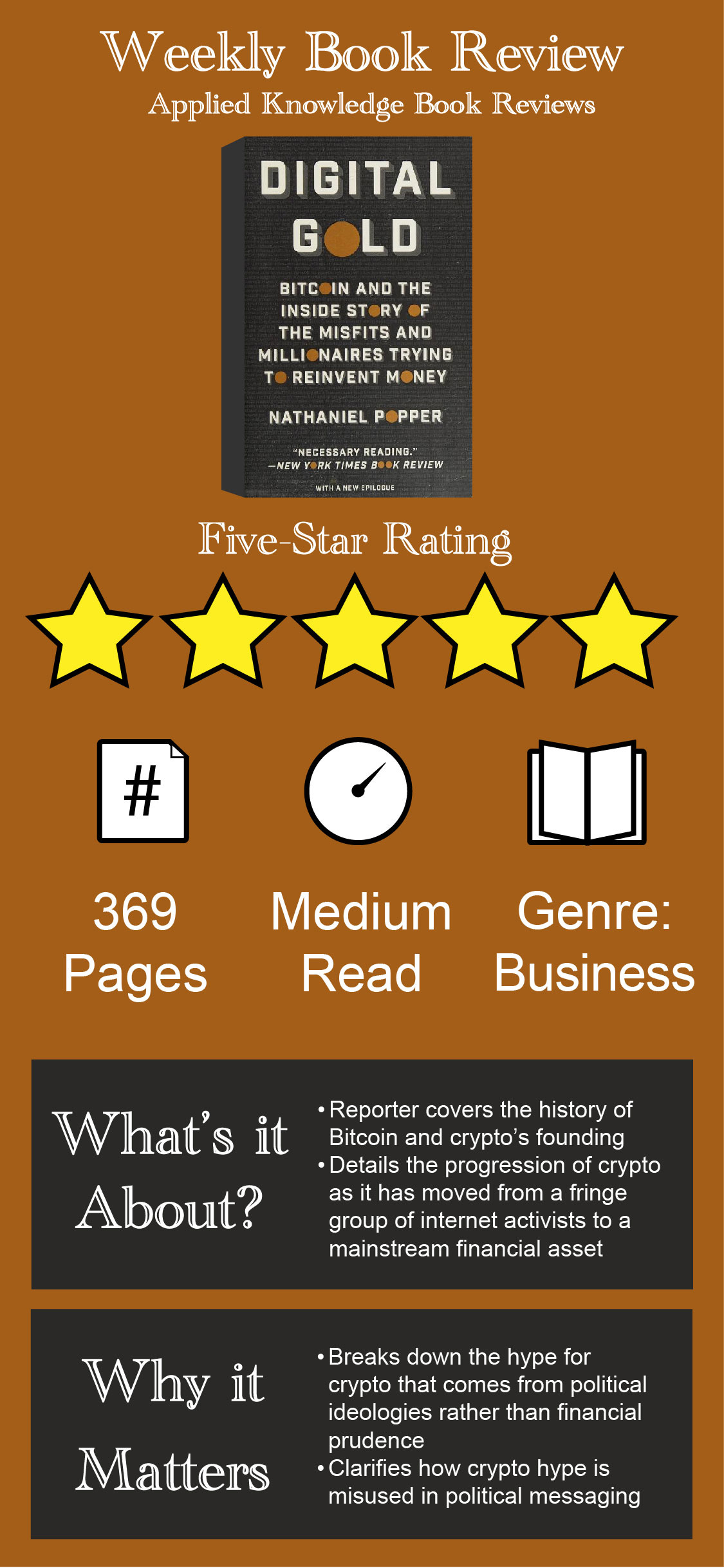What the Story of Bitcoin Tells us About Politicians Today
Even after moving into the mainstream, some of the same politics behind Bitcoin's founding motivate its supporters today.
One of the things that’s easy to forget about Bitcoin and other digital currencies is that they began as political projects before they were viable financial ones. Digital Gold is a book that covers the ideological forces that came together to make a digital currency possible. In the book’s introduction, Nathaniel Popper warns his readers:
“This…is not a normal startup story, about a lone genius molding the world in his image and making gobs of money. it is, instead, a tale of a group invention that tapped into many of the prevailing currents of our time: the anger at the government and Wall Street; the battles between Silicon Valley and the financial industry; and the hopes we have placed in technology to save us from our own human frailty, as well as the fear that the power of technology can generate.”
The idea for Bitcoin was rooted in an article published by Satoshi Nakamoto. It would be a digital currency free from central banks or political authorities. Satoshi imagined a trustless financial product which eliminated trust in the Federal Reserve and placed it in a network of traders who could see the currency’s rules and vote on those rules.
Bitcoin was revolutionary because it created “a financial network that could create and move money without a central authority.”
Those early dreams of democratization of currency have had mixed results. With some of crypto’s greatest champions in the White House and financial regulators, understanding the parts of the dream that have fallen short will help readers detect today’s oversimplifications.
Crypto is Less Democratic than the Early Days
To mine a Bitcoin, all a trader needs to do is solve a complicated math problem. One correct solution awards one Bitcoin. Anyone with a device can mine, but an organization with server farms has a much better chance of landing on not just one solution but several in sequence.
Large miners have acquired a near-monopoly on the mining of new coins. Ten pools of miners account for 92% of new coin creation. On crypto exchange Polymarket, a wealthy group of traders resolved a market in their favor instead of what the numerical majority of the traders believed occurred.
Bitcoin and crypto may have originated outside of Silicon Valley, but the most prominent Silicon Valley figures are well invested in it now. The former head of crypto policy for a16z is on track to lead the Commodity Futures and Trading Commission (CFTC), which is the regulatory agency expected to oversee crypto under the Trump administration.
Part of the reason is that crypto has become more user-friendly. Instead of having to learn to hash or navigate clunky web3 applications, companies like Coinbase have made trading crypto easy for ordinary traders. Investor Marc Andreessen noted that over time, “the fringe characters tend to get alienated and then tend to move on to the next fringe technology.”
Crypto is Still — Partially — a Political Project
As this post is being written, Bitcoin’s value is a little above $80,000. It has come a long way since its early worthless days in 2008. No other cryptocurrency has been so highly valued.
Some have enjoyed brief spikes in value, often as part of a pump and dump scheme that brings a memecoin from near-nothing to a modest value before crashing the value again.
But ideologically, the anti-establishment appeal of crypto remains powerful. It’s a break from the ordinary institutions whose failures — real and perceived — brought Trump to the presidency twice. Instead of investing in the stock market that collapsed during the 2008 financial crisis, traders can invest in crypto, a universe separate from the “real” world of governments and undesirable elites.
Ross Ulbricht founded Silk Road to allow transactions of goods and services that were untraceable by governments and regulators. Those transactions included illegal drugs and, in Ulbricht’s case, several murder-for-hire deals that the FBI found transactions for but no evidence of the murders being carried out. Trump pardoned him in the first week of his second term.
The anti-establishment members of Trump’s political base share the disdain for institutions that crypto criminals and idealists alike bought into in the early days of Bitcoin’s rise.
Digital Gold is required reading for anyone who wants to understand why Trump and so many of his supporters are all in on crypto despite Trump’s lack of personal passion for it.


